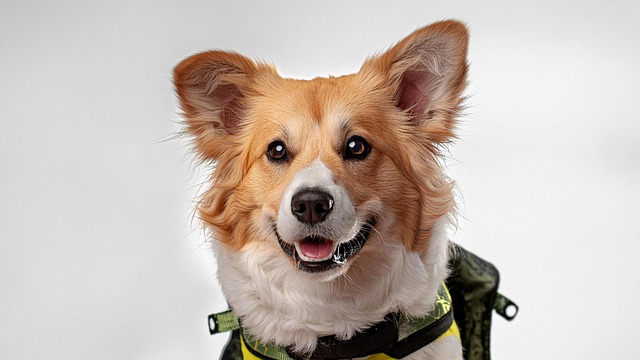
At what age do dogs get food allergies?
When we stroke our fluffy beloved dogs and watch them wagging their tails while enjoying their food, we rarely think that seemingly ordinary food can be an "invisible killer" that harms them.
When your pet suddenly starts to scratch frequently, has diarrhea, or has ear inflammation, and is diagnosed with food allergies, every pet owner will be worried. Food allergies not only cause physical discomfort to dogs, but also affect every nerve of their owners. However, in this fight against allergies, a core question that lingers in the minds of owners is always lingering - how long does it take for dogs to recover from food allergies? The answer is not a simple number, but a complex process affected by multiple factors. It requires both scientific response and the owner's delicate care and patient companionship.
The recovery time of dog food allergies depends primarily on the severity of the allergy. Mild allergic reactions, such as only local skin itching and occasional sneezing, can be recovered relatively quickly after timely discovery and adjustment of diet. This is like a sudden light rain. As long as you hold up an umbrella in time, the damage can be minimized. In this case, the dog may gradually relieve the discomfort symptoms through its own immune regulation within 1-2 weeks after stopping contact with the allergic food. Their immune systems will slowly calm down the abnormal immune response, skin inflammation will gradually subside, and gastrointestinal function will return to normal.
However, if the allergic reaction is more severe, with symptoms such as systemic rash, severe vomiting, difficulty breathing, and even anaphylactic shock, the road to recovery is full of hardships and challenges. This is like a fierce storm, which has a serious impact on the dog's body. In severe allergies, the dog's immune system is in a high "alert" state, and the excessive immune response triggers a series of chain reactions that attack normal body tissues. At this time, the dog not only needs to stop eating allergic foods immediately, but also often needs to cooperate with drug treatment, such as using antihistamines to relieve itching and swelling, corticosteroids to reduce inflammation, and even emergency rescue in shock. In this case, the recovery period may be extended to weeks or even months. The dog needs to go through a long recovery phase to gradually repair the damaged body functions, and the immune system also needs longer to re-establish balance.
 In addition to the severity of the allergy, the dog's own physique is also a key factor affecting the recovery time. Just like humans, every dog has a unique "body code". Young, healthy and immune-strong dogs are like castles with strong walls when facing food allergies. They can resist the damage caused by allergies more quickly and have relatively strong recovery ability. Their metabolism is vigorous, cell repair speed is fast, and the body can efficiently remove harmful substances caused by allergies and rebuild immune balance. It is more difficult for elderly dogs, dogs with other chronic diseases or low immunity to recover. Aging or disease weakens their body functions, and the immune system's response becomes sluggish, just like a wall that has been in disrepair for a long time and cannot respond quickly to enemy attacks.
In addition to the severity of the allergy, the dog's own physique is also a key factor affecting the recovery time. Just like humans, every dog has a unique "body code". Young, healthy and immune-strong dogs are like castles with strong walls when facing food allergies. They can resist the damage caused by allergies more quickly and have relatively strong recovery ability. Their metabolism is vigorous, cell repair speed is fast, and the body can efficiently remove harmful substances caused by allergies and rebuild immune balance. It is more difficult for elderly dogs, dogs with other chronic diseases or low immunity to recover. Aging or disease weakens their body functions, and the immune system's response becomes sluggish, just like a wall that has been in disrepair for a long time and cannot respond quickly to enemy attacks.
The effectiveness of dietary adjustment plays a decisive role in the dog's recovery process. Once food allergies are diagnosed, switching to hypoallergenic or prescription food is a crucial step. However, this is not a simple "change and forget". Hypoallergenic prescription food is specially processed to remove common allergens, and uses a single protein source and hydrolyzed protein technology to reduce the recognition of the immune system and reduce allergic reactions. But the dog's stomach needs time to adapt to new food, just like people will feel uncomfortable when they suddenly change their eating habits. In the early stage after changing the diet, some dogs may experience short-term indigestion, such as soft stools and loss of appetite. The owner needs to closely observe the dog's reaction and gradually adjust the feeding amount and frequency according to its digestion. Only when the dog is fully adapted to the new diet and the new diet really avoids allergens, can the body really begin to repair. This process may take 2-4 weeks, or even longer. Any accidental contact with allergic food during this period may cause allergic symptoms to recur and prolong the recovery time.
Throughout the recovery process, the owner's careful care is a strong backing for the dog to overcome allergies. From the moment the dog's allergy is discovered, the owner seems to have become a "warrior" to protect them. The owner needs to strictly follow the veterinarian's advice and carefully record the dog's diet, symptom changes, and even the time of each defecation and scratching. This meticulous observation can help to timely discover subtle changes in the recovery process and provide a basis for adjusting the treatment plan. When dogs are irritable and restless due to itching, the owner's gentle comfort and light touch are like a good medicine to relieve their anxiety; when dogs have a poor appetite and resist eating, the owner prepares delicious food in various ways, gives encouragement and companionship, and helps them get enough nutrition.
The process of a dog's recovery from food allergies is a journey full of challenges and hope. There is no fixed timetable for this process. It requires us to be guided by scientific cognition and supported by delicate love. Perhaps one morning, when you see the dog who was once tortured by allergies jumping towards you again and rubbing your hand with a wet nose, at that moment, all the torment of waiting will turn into joy and relief.

When we stroke our fluffy beloved dogs and watch them wagging their tails while enjoying their food, we rarely think that seemingly ordinary food can be an "invisible killer" that harms them.

When the fluffy little dog leaves the warm embrace of its mother dog and starts to face the world independently, its ignorant and dependent eyes make every owner feel affectionate.

In the late night pet hospital, under the incandescent light, you watch your dog struggling to move its body, every step accompanied by a slight tremble,

When our furry friends at home scratch frequently, sneeze incessantly, or show symptoms such as diarrhea and ear inflammation, the hearts of every pet owner are gripped with worry.

When you squat down and want to stroke that once fluffy Corgi, your palm gets covered with large amounts of dog hair.

When the furry little golden fur happily falls into your arms, with a faint odor or soil left behind from playing, bathing it becomes a necessary and challenging task.